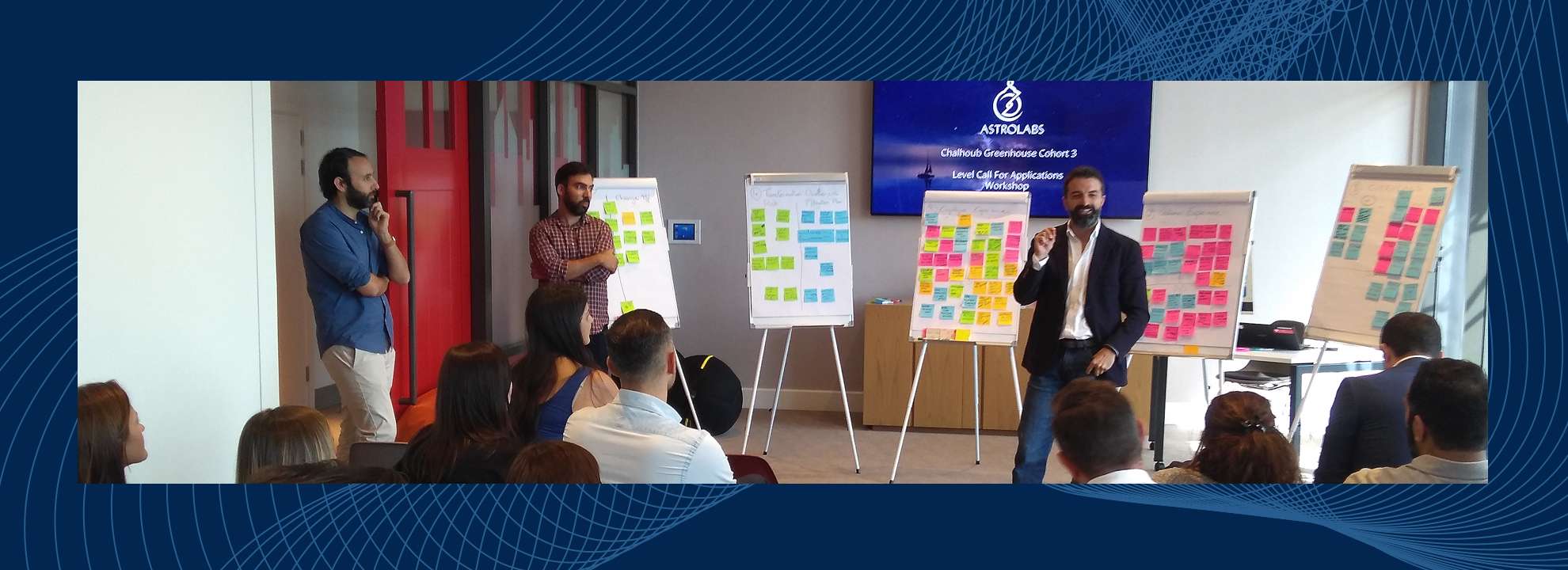Contributed by: Roland Daher, AstroLabs CEO
I vividly remember when Wamda coined the term Corporate Entrepreneurship Responsibility in 2013 and launched the CER movement in MENA ( Corporate Entre- a fairly visionary and advanced proposition for the emerging entrepreneurial ecosystem back then.
Although some early adopters (Aramex, GE, etc…) ran promising innovation programs, a decade ago working with startups or supporting the ecosystem was a show of “goodwill” rather than a business imperative for large enterprises. In its nascent stages, innovation programs were merely part of CSR campaigns that invited large players and emerging businesses to collaborate, yet still lacked the foresight to truly unlock disruptive potential.
The first time I personally heard a different narrative on working with startups was when the Chalhoub Group called AstroLabs to help design the first edition of the Greenhouse Accelerator. It was also the first time I didn’t have to explain to a CEO why working with startups was a good idea. Instead, Patrick Chalhoub and his team were crystal clear on the business case: we either embrace startups, learn to be like them and work with them, or we risk being out of the race.
The ability of local startups and emerging businesses to reshape business practices, introduce new innovations, and solve critical challenges, and the eagerness for large enterprises to engage them was a turning point in the ecosystem’s maturity. Nonetheless, the readiness of the entrepreneurial community to take on the open innovation challenge was not yet a given; the ecosystem still lacked infrastructure, business acumen, and agility.
This is not the case anymore; emerging startups in the region are not only operating at global standards but were also able to claim their seat at the table after a pivotal trial during the pandemic. It was the startups who were able to rapidly pivot their business models, hack their product offerings, and be the first to capture shifting market demand.
Open innovation doesn’t come naturally at first. When we started the Chalhoub Greenhouse Program in 2017, the idea was that business units from the Chalhoub Group launch challenges for startups to come and solve, and it was indeed a hard sell. For the first round, the Greenhouse Team had to reach out to business units and brands and thoroughly explain the immense potential at hand; “you have nothing to lose and everything to win.” Within the first program, we started seeing interest from people who were averse to the idea, and soon enough welcomed a wave of participation requests from new business units for the second cohort. By the third cycle, we were oversubscribed. Today, the Greenhouse team is continuously scaling the program as its powerhouse of innovation which is sustained and expanded proactively.
The biggest challenge has always been in shifting the perceptions around these programs: from one-off community engagements to large-impact, long-term innovation tracks. Slowly but surely, with the emergence of viable prospects and initial traction, the value and impact of such programs begin crystallizing.
Earlier this year, our team graduated its first cohort of the Majid Al Futtaim Launchpad Accelerator Programme where 14 regional businesses were engaged, shortlisted, prepped, and selected to be integrated into the Majid Al Futtaim extensive business ecosystem. As much of a good impact as it has, the Majid Al Futtaim Launchpad is not a CSR initiative. It’s another strategic growth initiative through expansion into new segments, channels, and business models that startups and SMEs can offer to Majid Al Futtaim when properly onboarded.
In my opinion, the success of this experience is not only linked to the refined quality of participating businesses or the deep commitment from leadership alone, but it is also to the depth of this collaboration platform. The Majid Al Futtaim Launchpad program was built around the growth of revenue, profitability, knowledge, and capabilities of all stakeholders involved.
Industry leaders have been industry leaders because they are the oldest and the largest in their market, yet things are changing fast around them – consumer trends, the economy, and competitive environments are evolving at a too rapid pace to keep up with. The only way established players can survive is by evolving fast. That’s a lot to figure out on your own. Emerging businesses have a lot to offer to large enterprises in that regard, and in return can benefit from the unmatched access to resources, capital, and technology infrastructure that they would have otherwise not been able to operate with.
Are we entirely there yet? Definitely not, but the leap from nice-to-have to must-have is a solid step forward. While the greater good impact of corporates working with startups is unquestionable, it’s surely not CSR – unless we’re referring to Corporate Survival Responsibility.

